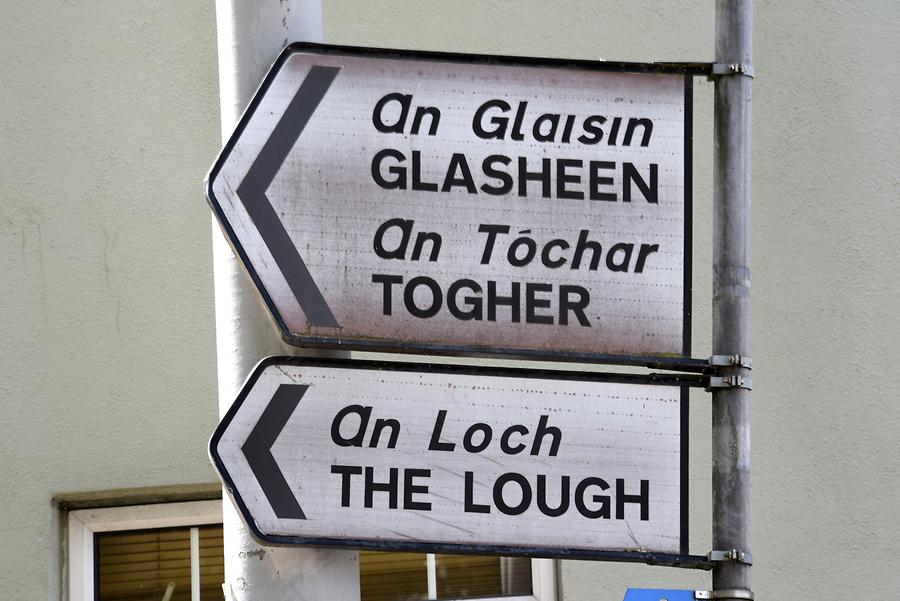Road Signs#

Road Signs, July 2017, © Gerhard Huber, under CC BY-NC 4.0 +Edu
Als wichtigstes keltisches Erbe behielten die Iren ihre gälische Sprache - neben Englisch die zweite Amtssprache der Republik. Das literarische Vermächtnis der Iren, die vier großen Sagenkreise, sind in gälisch verfasst. Es handelt sich um eine Art keltisches Nibelungenlied, das von Heldenmut und Blutvergießen, von Magie, Liebe und Verrat berichtet. Die komplexe gälische Dichtkunst wurde von Barden vorgetragen. Sie besaßen einen hohen Rang in der Gesellschaft. Einen Sänger zu töten, kostete 120 Stück Großvieh, ein königliches Vermögen. Ganz anders unter englischer Herrschaft: Damals war gälisch, als Zeichen der keltisch-katholischen Iren, gänzlich verboten.
Bis 1870 trugen Kinder einen Ring um den Hals, in den Eltern Kerben schnitzen mussten, wenn ihr Kind gälisch gesprochen hatte. In der Schule folgten dafür die Prügel. Heute erlebt gälisch wieder eine Renaissance – zumindest theoretisch. Jedes Kind muss in der Schule die Sprache erlernen. Im Alltag spricht jedoch kaum ein Ire gälisch. Nur in einigen Küstengebieten im Westen geben noch 25.000 Menschen gälisch als Muttersprache an.
The most important thing the Irish kept from the Celtic people is the Gaelic language - with english the second official language of the republic. The literary legacy of the Irish, the four great epic cycles, are written in Gaelic language. It is some kind of Celtic 'Nibelungenlied', that tells of valour and bloodshed, of magic, love and treason. The complex Gaelic poesy was ricited by bards. They had a high position in society. To kill a singer cost 120 animals of heavy livestock, which was a royal fortune. When the English ruled over the country, this was different: Gaelic was completely forbidden, because it was a token for the celtic-catholic Irish. Until 1870 the children had to wear a circlet around the neck and their parents had to carve grooves into it every time the child spoke Gaelic. In school they got beaten for that. Today Gaelic has got its renaissance - at least theoretically. Every child has to learn the language in school. In everyday life nearly noone talks Gaelic. Only in some coastal areas in the west there are 25.000 people who consider Gaelic their mother tongue.